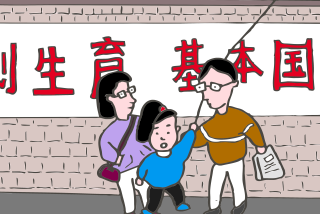China Prepared to Be More Flexible in Trade Negotiations With Taiwan
- Share via
BEIJING — Mainland China would be willing to lower its requirements for negotiations with Taiwan on ending a 51-year ban on direct trade and travel across the Taiwan Strait, official media reported Saturday.
Beijing has previously demanded that, as a precondition for any political talks, the government in Taipei accept the “one-China principle,” meaning there is a single motherland of which Taiwan is a part.
“As long as [the links] are conducted as internal affairs within one country, we will take pragmatic steps to work with them,” the English-language China Daily quoted He Shizhong, an official with the Chinese Cabinet’s Taiwan Affairs Office, as saying.
The report praised the official’s comments as a “major goodwill gesture” that it said “should push forward more direct contact between Taiwan and the Chinese mainland.”
However, the paper was quick to stress that China’s “general principle has not changed--and will not change. The Taiwanese authorities must embrace the one-China principle in developing cross-straits ties.”
The conciliatory words followed Taipei’s recent decision to allow direct trade and travel between Taiwanese-held islands and the mainland. The first ships made the voyage between the islands of Quemoy and Matsu and China’s Fujian province last week. Taiwanese officials have said that if these partial contacts work out, they will consider expanding them to include Taiwan’s main island.
Since China and Taiwan split in 1949 after a long civil war, travelers between the two have had to go through a third territory, usually Hong Kong. Beijing has made reunification with Taiwan one of its top policy goals and has threatened to invade if Taiwan declares independence.
Beijing has long pushed for full contacts with all of Taiwan and has previously dismissed the partial links as inadequate.
On Friday, Chinese Vice Premier Qian Qichen met unofficially with representatives of Taiwan’s two major opposition parties, the Nationalists and the New Party, to promote full, direct contacts.
“We hope that the Taiwan authorities will move with the tide and the popular will [and] abandon their unreasonable regulations and actions blocking” direct links, Qian told the Taiwanese visitors, according to state media.
Earlier last week, Qian said China was willing to be flexible toward Taiwan and more pragmatic in its definition of “one China.” He also indicated that Beijing was willing to discuss any option with Taipei, including some sort of confederation between Taiwan and the mainland.
But discussion is far from acceptance, and China has consistently rejected any suggestion of a federal system, which might imply the union of two sovereign states.
Qian’s remarks were apparently directed at Washington and the incoming administration. During his campaign, President-elect George W. Bush referred to Beijing as a “strategic competitor.”
That view has recently prompted Chinese scholars to articulate their concerns about the incoming administration and its policies.
“Judging from Bush’s campaign rhetoric on China policy, it is quite normal for China to be worried about his taking office,” American affairs scholar Shi Yinhong said in a recent article. Shi cited the president-elect’s support for including Taiwan under a planned missile defense system as a particular source of concern for Beijing.
More to Read
Sign up for Essential California
The most important California stories and recommendations in your inbox every morning.
You may occasionally receive promotional content from the Los Angeles Times.













